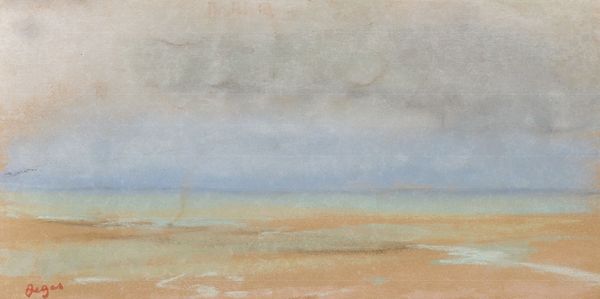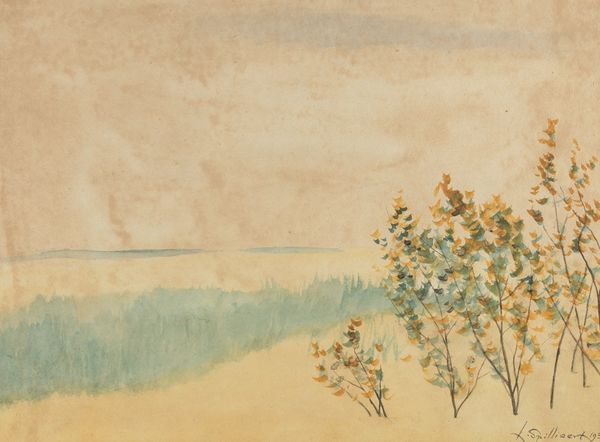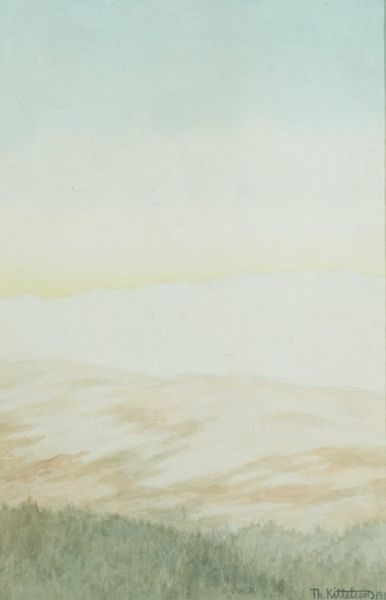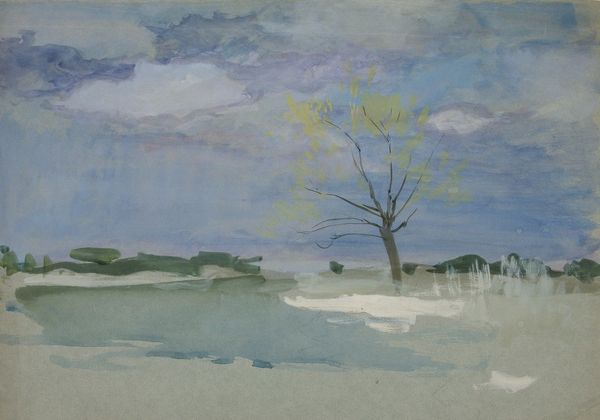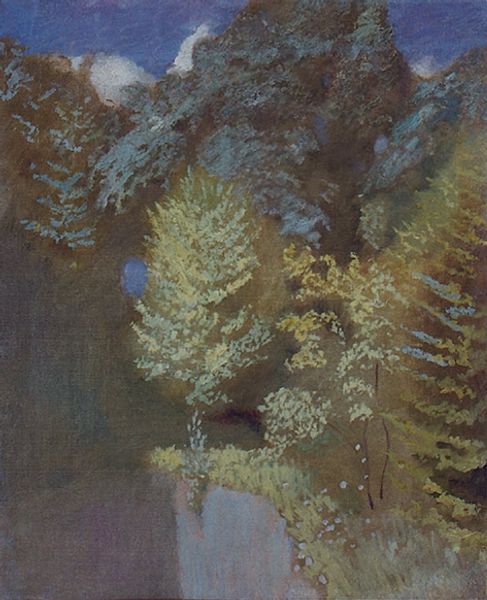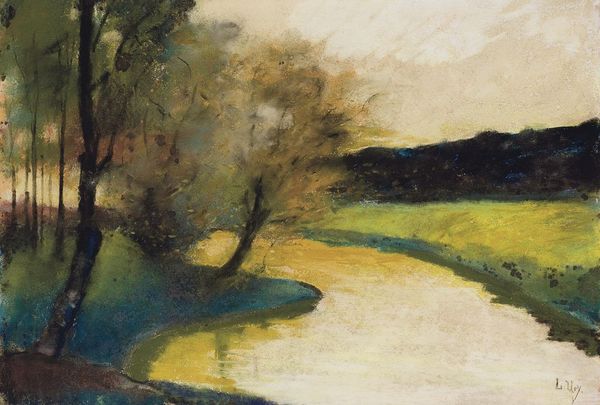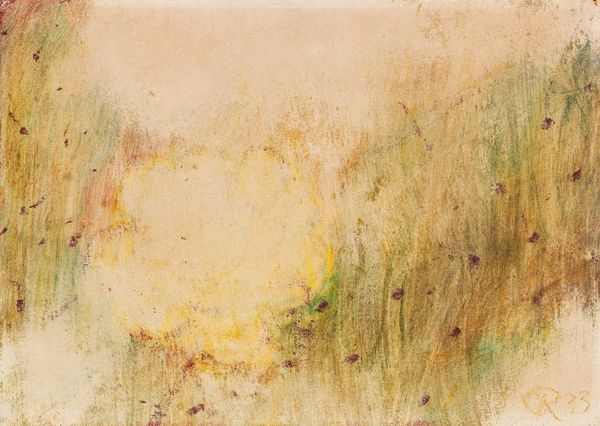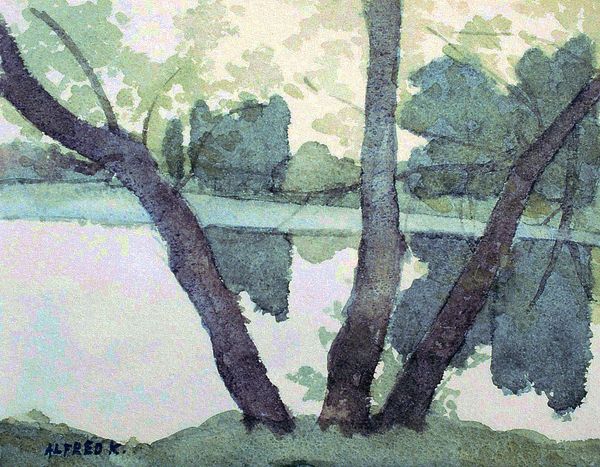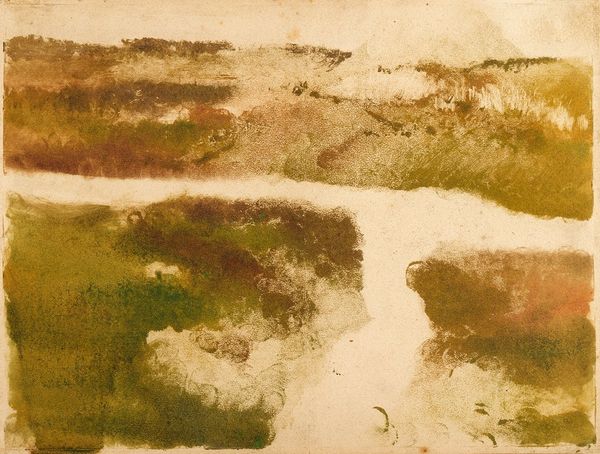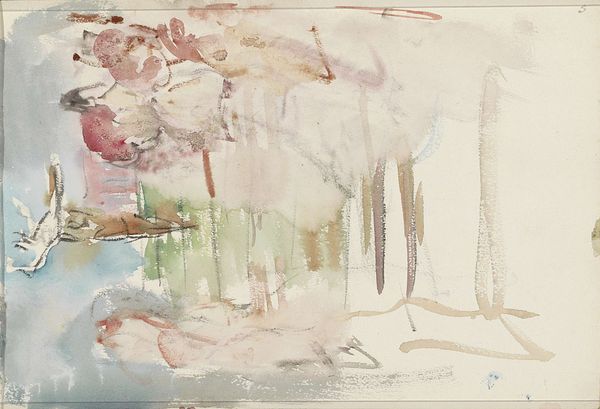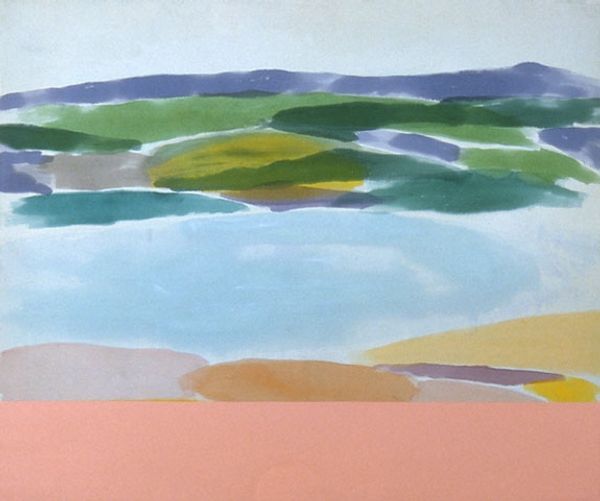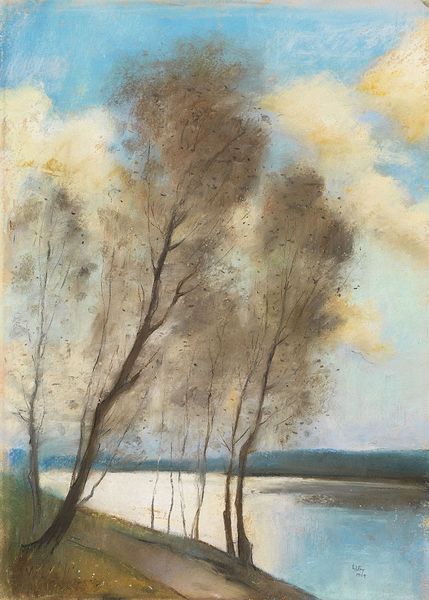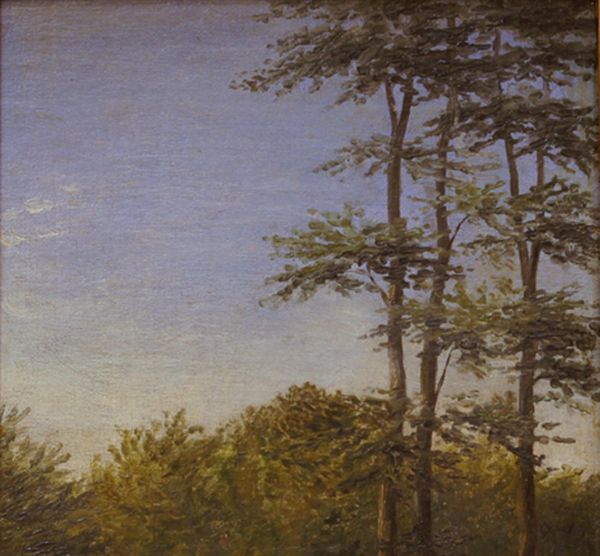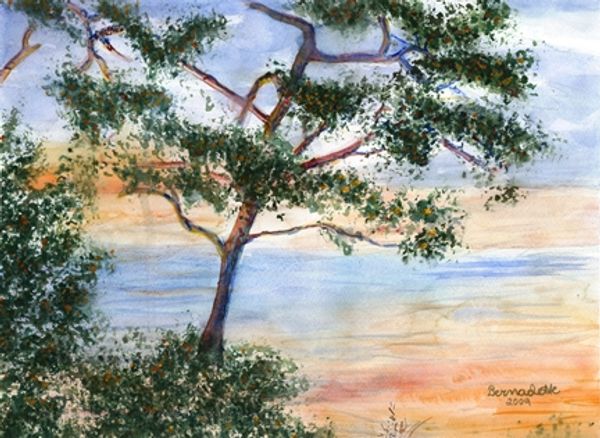
watercolor
#
impressionism
#
landscape
#
watercolor
#
watercolor
Copyright: Public domain
Theodor Severin Kittelsen created St Hans with watercolor on paper. The delicate, almost ethereal quality of this landscape hinges on the properties of watercolor itself. Unlike oil paint, which can be layered thickly to create depth and texture, watercolor relies on transparency. Kittelsen masterfully employs this inherent quality, allowing the white of the paper to shine through thin washes of pigment. Look closely, and you can see how the colors subtly blend and bleed into one another, creating a sense of light and atmosphere. The technique perfectly captures the stillness of a Nordic summer's day. Kittelsen's choice of watercolor is significant. It was often favored for its portability and immediacy, suiting plein air painting. Yet, its association with amateur art and illustration also placed it outside the traditional hierarchy of fine art. By embracing this medium, Kittelsen blurred boundaries, elevating the humble materials of everyday life into a work of profound beauty. This reminds us that value is not inherent in materials but rather, emerges through the artist's skill and vision.
Comments
No comments
Be the first to comment and join the conversation on the ultimate creative platform.
